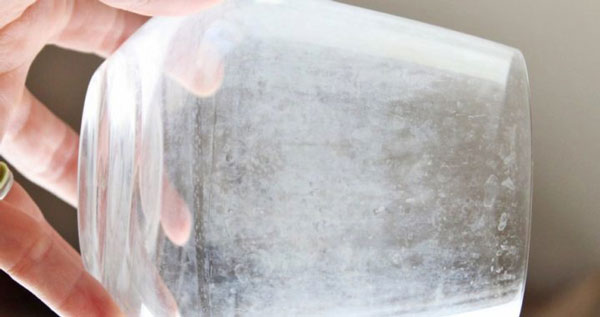Hard Water Testing - Questions
Hard Water Testing - Questions
Blog Article
Hard Water Testing Fundamentals Explained
Table of ContentsNot known Incorrect Statements About Hard Water Testing The Best Guide To Hard Water Testing7 Easy Facts About Hard Water Testing DescribedThings about Hard Water TestingOur Hard Water Testing StatementsHard Water Testing for Dummies
As soon as the water from your shower dries out, mineral down payments are left behind, triggering your once-shiny, clear shower doors and fixtures to be covered in water spots. In enhancement, because water will take longer to heat up, it will utilize a lot more energy and therefore enhance your energy costs.What Does Hard Water Testing Mean?
Have you ever questioned how to evaluate water firmness in your residence? While difficult water may be potable water and not necessarily hazardous to your health and wellness, it does result in a number of undesirable effects with which you are possibly familiar.
While there are in-depth tests that can provide you an exact and exact procedure of just how tough your water is, establishing whether you have difficult water is a much easier workout. In this write-up, we're mosting likely to lay out some easy to comprehend pointers that can assist you establish whether or not you have hard water.
Some of these are just unpleasant, while others can impact everything from the effectiveness of your home appliances to the wetness of your hair and skin - Hard Water Testing. In the long run, you could be surprised at the several manner ins which hard water has had an effect on your life and might want a whole home water softener
Facts About Hard Water Testing Revealed
Hard water is water that has a high quantity of minerals in it. Most of these minerals are generally calcium carbonate and magnesium, however other minerals such as manganese and iron can also be found in difficult water samples. The higher the mineral matter in your water, the tougher your water is thought about.
A higher concentration than this is taken into consideration to be difficult water, with varying levels of firmness assigned to different thresholds of calcium carbonate. The formation of hard water occurs normally with an interaction between water and the soil it goes through. Beginning as precipitation, water is largely soft, though there may be percentages of minerals contained in rains.

The movement of water via the soil and right into the rivers and aquifers that offer our water supply is long and difficult. As water passes through dirt in the process, it dissolves the bonds of the mineral ions in the soil. These minerals are after that carried together with the water right into the water that reaches your faucet.
Examine This Report on Hard Water Testing
This generally means chalk or sedimentary rock. Tough water can likewise consist of high levels of iron if it moves with iron-rich dirt. Rephrase, the visibility or absence of minerals in the soil around a groundwater source has a straight influence on exactly how tough the water is. This indicates that the solidity of water can differ significantly based on where you live.
This is likewise why you might notice click reference that the water feels different when you visit another state or nation. If you are asking yourself just how to gauge water solidity, there are a range of different tests Web Site you can do to figure out whether your water is hard. The majority of metropolitan water distributors likewise publish information about what sorts of minerals and various other compounds the water piped into your house contains.
An instance of a neighborhood metropolitan water top quality report can be discovered right here (Hard Water Testing). Short of surfing a water top quality report or evaluating the water straight at your tap using a water examination set, there are some simple observational methods that you can utilize to identify if your water is hard
See This Report about Hard Water Testing
If you have actually observed scaly build-up on your fixtures then you most likely have hard water. You may have noticed that the nozzles on your shower head come to be clogged with time. This occlusion is because of natural resources left by hard water. The same is true of the nozzles in your dishwashing machine, which gradually end up being shut off by natural resource over time.
White or gray pop over to this site discolorations often tend to be from calcium carbonate, while locations with a high quantity of iron in the water will produce reddish spots on components and taps. If you are constantly battling soap scum, you have difficult water. Soap residue is a white, cloudy layer often discovered in showers, in sinks, or on washroom fixtures.

Hard Water Testing Can Be Fun For Everyone
Among these is the impact of difficult water on hair. You can check for water solidity by observing your hair hair cleaned with difficult water will begin to form a layer of minerals on the hair follicle. This mineral layer has a number of results that you might not have actually even recognized were happening.
Commonly, hair cleaned in tough water will, with time, come to be duller and do not have the vibrancy of hair washed in soft water. Your hair might also be drier when washed with difficult water vs. soft water. The minerals deposited by hard water makes it much more challenging for moisturizers to permeate your hair roots, resulting in drier hair in time.
If you wash your hands with tough water and soap, you will possibly observe that your hands can feel a bit dry and harsh nevertheless the soap has been visibly washed away, calling for lotion or oil. That dry feeling is from a slim layer of soap sticking to the difficult mineral left behind and sticking to your hand and is a common indicator that your water is hard.
Report this page